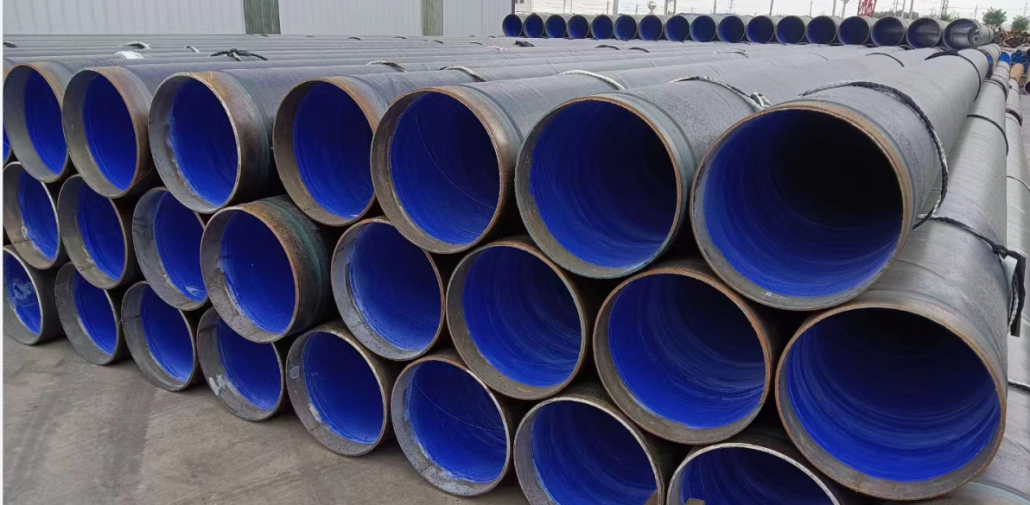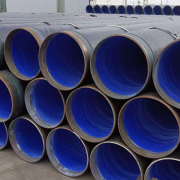Requirements For Anti-corrosion Steel Pipes For Anti-corrosion Coatings
Common anti-corrosion process of anti-corrosion steel pipes Anti-corrosion steel pipes refer to steel pipes that have been processed by anti-corrosion technology, which can effectively prevent or slow down the corrosion phenomenon caused by chemical or electrochemical reactions during transportation and use.
3PE ordinary anti-corrosion steel pipe refers to 3-layer structure polyolefin coating (MAPEC) outer anti-corrosion steel pipe, which is a commonly used anti-corrosion pipe in China. Three-layer PE anti-corrosion structure: the first layer of epoxy powder (FBE>100um), the second layer of adhesive (AD) 170~250um, and the third layer of polyethylene (PE) 2.5~3.7mm. Other anti-corrosion methods include IPN8710, FBE epoxy powder, and epoxy coal tar pitch.
In addition to improving the service life of steel pipes, the use of anti-corrosion steel pipes has the following advantages:
1. Combining the mechanical strength of steel pipe and the corrosion resistance of plastic
2. The outer wall coating is more than 2.5mm, scratch-resistant and bump-resistant
3. The friction coefficient of the inner wall is small, reducing energy consumption
4. The inner wall meets the national hygiene standard
5. The inner wall is smooth and not easy to scale, and has the function of self-cleaning.
The coating requirements for anti-corrosion steel pipe coating mainly include the following three aspects:
(1) The coating formed by good corrosion-resistant coatings should be relatively stable when exposed to various corrosive media such as acids, alkalis, salts, industrial sewage, and chemical atmospheres, and cannot be dissolved, swelled or decomposed by corrosive media. Nor can it chemically react with the medium to generate new harmful substances;
(2) When a good anti-seepage coating contacts a liquid or gas medium with strong permeability, it can better prevent its penetration and prevent its corrosion on the surface of the pipeline;
(3) Good adhesion and flexibility: the coating cannot fall off due to the vibration or slight deformation of the pipeline, and the coating is required to have a certain mechanical strength.





Leave a Reply
Want to join the discussion?Feel free to contribute!